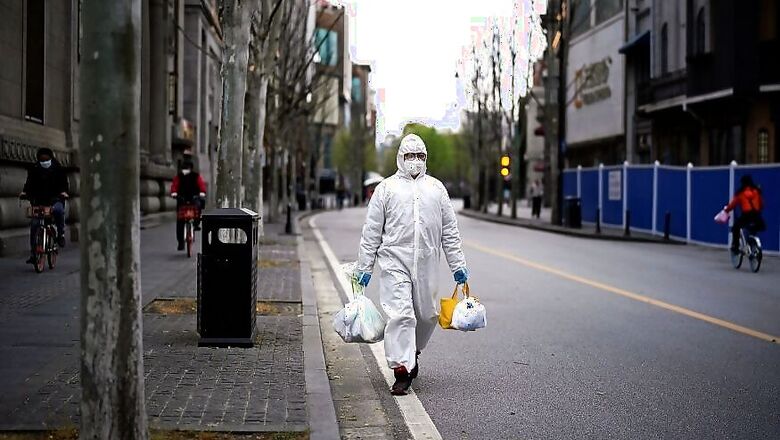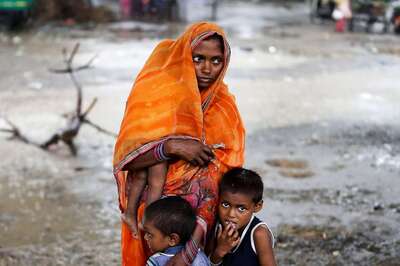
views
Beijing: China reported 45 new coronavirus cases in the mainland for Saturday, down from 54 on the previous day, with all but one involving travellers from overseas, the country's health authority said on Sunday.
In the last seven days, China has reported 313 imported cases of coronavirus but only 6 confirmed cases of domestic transmission, data from the National Health Commission showed.
Most of those imported cases have involved Chinese returning home from abroad. Airlines have been ordered to sharply cut international flights from Sunday. And restrictions on foreigners entering the country went into effect on Saturday.
Five more people died on Saturday, all of them in Wuhan, the industrial central city where the epidemic began in December. But Wuhan, the capital of Hubei province, has reported only one new case on the last 10 days.
A total of 3,300 people have now died in mainland China, with a reported 81,439 infections.
Saturday marked the fourth consecutive day that Hubei province recorded no new confirmed cases.
With traffic restrictions in the province lifted, Wuhan is also gradually reopening borders and restarting some local transportation services.
All airports in Hubei resumed some domestic flights on Sunday, with the exception of Wuhan's Tianhe airport, which will open to domestic flights on April 8. Flights from Hubei to Beijing remain suspended.
A train arrived in Wuhan on Saturday for the first time since the city was placed in lockdown two months ago. Greeting the train, Hubei Communist Party Secretary Ying Yong described Wuhan as "a city full of hope" and said its people heroism and hard work had "basically cut off transmission" of the virus.
Saturday's sole case of domestically transmitted coronavirus was recorded in Henan province, bordering Hubei.
With the world's second-biggest economy expected to shrink for the first time in four decades this quarter, China is set to unleash hundreds of billions of dollars in stimulus.
The ruling Communist Party's Politburo called on Friday for a bigger budget deficit, the issuance of more local and national bonds, and steps to guide interest rates lower, delay loan repayments, reduce supply-chain bottlenecks and boost consumption.



















Comments
0 comment